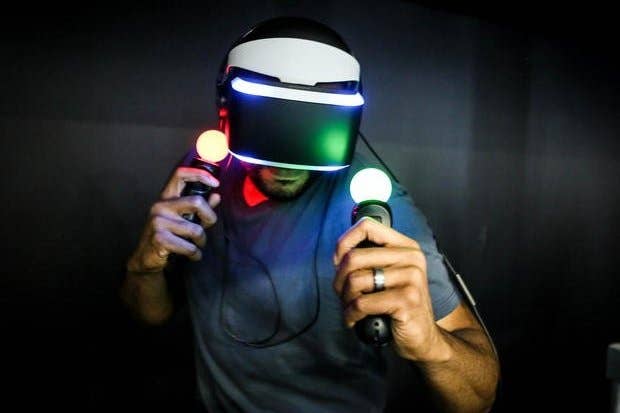Sony: "The first impression of VR has to be good"
Shuhei Yoshida on the importance of bespoke content in making virtual reality a success
While virtual reality has been one of the hottest trends in gaming since the Oculus Rift emerged in 2012, Sony's Shuhei Yoshida believes more preparation needs to be done before it's ready for consumers.
Speaking to Gamesindustry.biz at the Gamelab conference in Barcelona, Yoshida dismissed the possibility that the concept of VR as a new platform for gaming was in danger of losing momentum.
Sony's Project Morpheus may only have been unveiled at GDC this year, but it benefited from 18 months of steadily building hype around Oculus VR's Rift headset. Public interest is a difficult thing to sustain, but, according to Yoshida, the greater danger would be in rushing the devices to market before they offer a complete proposition.
"At the end of the day it's the content that sells. We need developers to start making games for it"
"I don't think [VR will lose momentum]," said Yoshida, president of Sony Computer Entertainment Worldwide Studios. "Only a very small number of people have tried Oculus Rift or Morpheus. We believe that unless you try it, you really don't know what it is that can be done.
"The enormous interest we're getting is really great, but it doesn't matter whether they try Oculus or Morpheus - [Oculus] is making something great, and we're also making that. We both realise that we can improve before we bring this to the market. The first impression has to be good."
Giving enough consumers first-hand experience of VR to seed a sustainable market is clearly a huge task, and that's only made more complicated by the design challenges the technology presents for developers. So far, the most effective demonstrations of VR have been experiences that restrict the player's in-game movement and require minimal use of additional input devices: CCP's EVE: Valkyrie, for example, in which the player's avatar is seated and can only move its head, or Sony's Street Luge demo, where the avatar is once again motionless and all movement is based around headtracking.
More traditional game genres - the early Doom 3 demo on Oculus Rift, or The Creative Assembly's experiment with Alien: Isolation - tend to be more jarring, the use of abstract inputs like buttons, triggers and analogue sticks sitting uneasily beside the unprecedented immersion offered by the display.
"Doom or Half-Life 2 is an amazing experience in VR initially, but you quickly realise it doesn't work"
Oculus CEO Palmer Luckey has highlighted the proliferation of bad VR experiences as the single biggest threat to establishing a firm grasp on the market, and warned that the Oculus Rift won't necessarily have, "a slam dunk of AAA content available at launch.... Good content takes time."
According to Yoshida, this is very much Sony's position, so it's in no great rush to commit to a launch date for Project Morpheus.
"Technically, it's easy to adapt to VR," he said. "It's not much different to making your game compatible with 3D stereoscopic TV. What's different is the game design doesn't work. Doom or Half-Life 2 is an amazing experience initially, but you quickly realise it doesn't work. The games have to be designed from the ground up, and that's what we've been saying to everyone, internally and externally. Either create something totally for VR, or create a VR dedicated experience within the same universe.
"At this point, what's really important is to get out there and let more people experience it, to make them believers - especially developers, because at the end of the day it's the content that sells. We need developers to start making games for it."









